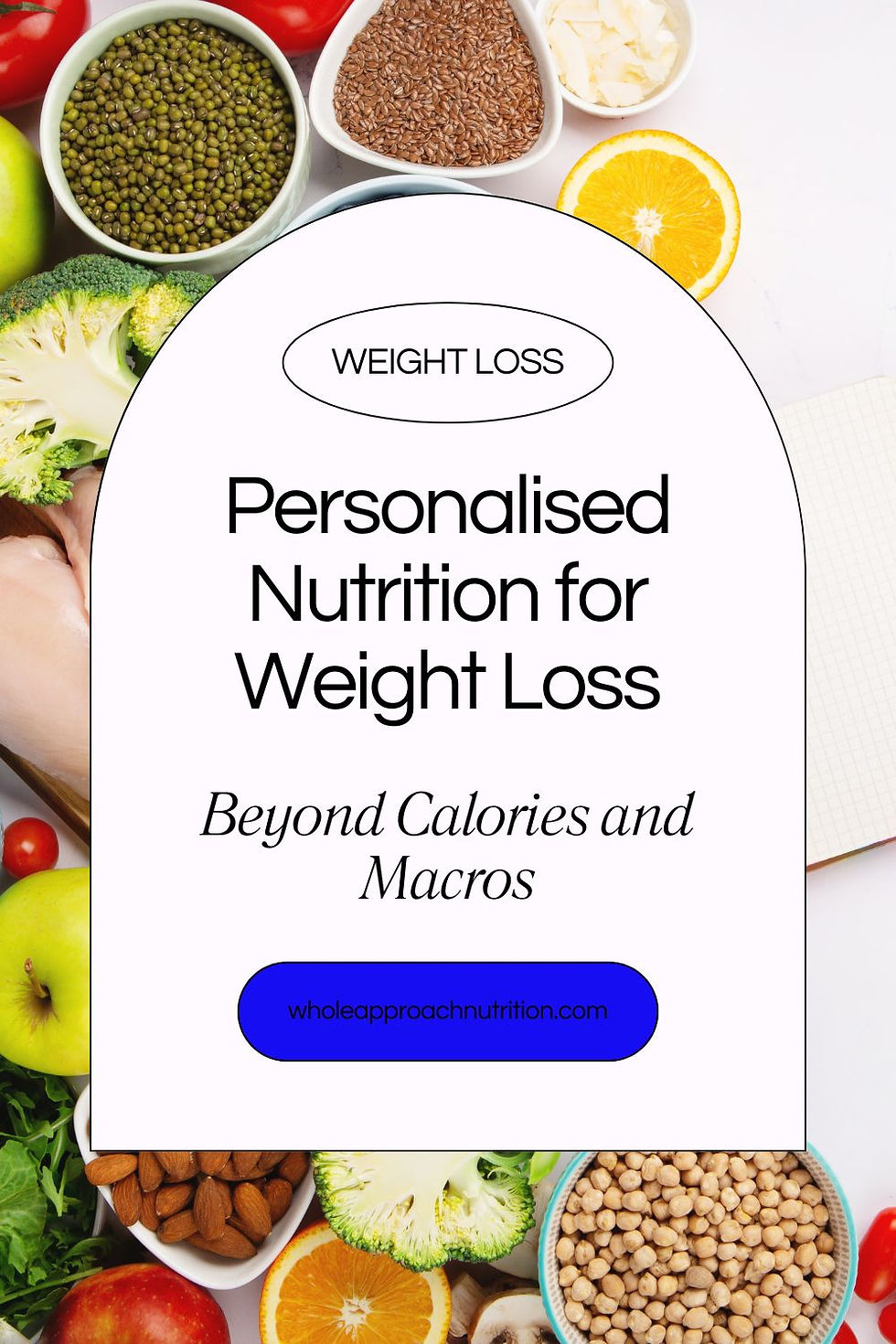Navigating Perimenopause and Menopause: How Nutrition Can Support Hormonal Balance
- Jacqui Baihn

- Mar 7, 2025
- 3 min read

Menopause and the transition leading up to it (perimenopause) are marked by significant hormonal fluctuations that can impact metabolism, bone health, cardiovascular function, and overall well-being. While menopause is a natural stage of life for women, the symptoms can be challenging. Nutrition plays an important role in supporting hormonal balance and mitigating common concerns such as weight gain, hot flushes, mood fluctuations and increased risk of chronic disease. This article explores evidence-based dietary strategies that can support women through this transition.
1. Phytoestrogens and Hormonal Balance
Phytoestrogens, plant-derived compounds with oestrogen-like activity, have been studied for their potential to alleviate menopausal symptoms. Isoflavones found in soy products (such as organic, non-GMO tofu, tempeh, and edamame) and lignans present in flaxseeds and whole grains may help reduce the severity of hot flushes and support bone density. Research suggests that regular consumption of soy isoflavones can lead to modest improvements in vasomotor symptoms, particularly in women who metabolise these compounds efficiently.
2. Blood Sugar Stability and Metabolic Health
Insulin resistance can increase during perimenopause, contributing to weight gain and elevated risk of type 2 diabetes. Emphasising a balanced macronutrient intake (prioritising fibre-rich carbohydrates, lean proteins and healthy fats) can promote better glucose control. Whole foods such as legumes, nuts, seeds, and vegetables provide fibre and micronutrients essential for metabolic health. Reducing ultra-processed foods and added sugars is also key in maintaining stable blood sugar levels.
3. Bone Health and Calcium-Rich Foods
With declining oestrogen levels, the risk of osteoporosis increases post-menopause. Adequate calcium intake (1,000 mg/day for pre-menopausal women and 1,300mg/day for postmenopausal women) and vitamin D (for calcium absorption) are crucial for bone mineral density. Organic A2 dairy products, fortified plant-based milks, tinned fish with edible bones (red salmon or sardines), organic tofu, leafy greens, nuts and seeds are excellent dietary sources of calcium. Additionally, vitamin K2 (found in dark leafy greens, fermented foods and certain animal products) supports calcium metabolism and bone integrity.
4. Cardiovascular Protection Through Anti-Inflammatory Nutrition
Oestrogen has a cardioprotective effect, and its decline post-menopause is associated with increased cardiovascular risk. Adopting an anti-inflammatory diet rich in omega-3 fatty acids (from fatty fish, flaxseeds, and walnuts), antioxidants (from berries, dark leafy greens, and cruciferous vegetables), and polyphenols (from olive oil, dark chocolate, and green tea) can support heart health. The Mediterranean diet, in particular, has strong evidence for reducing inflammation and improving lipid profiles in postmenopausal women.
5. Gut Microbiome and Estrobolome Function
The estrobolome, a subset of the gut microbiome, plays a role in oestrogen metabolism. A diverse and balanced microbiome can support oestrogen recycling and detoxification. Consuming prebiotic- and probiotic-rich foods (such as fermented vegetables, kefir, and high-fibre plant foods) fosters a healthy gut environment. Additionally, reducing exposure to endocrine-disrupting chemicals (found in processed foods, plastics and non-organic produce) can help support hormonal balance.
6. Lifestyle Factors: Beyond Diet
While nutrition is foundational, other lifestyle factors significantly impact menopausal health. Regular physical activity, particularly resistance training and weight-bearing exercises, can support bone density, metabolic function, and mood stability. Prioritising sleep, stress management (through mindfulness or yoga), and optimising circadian rhythms further contribute to hormonal balance.
Conclusion
Nutrition is a powerful tool for managing the physiological changes of perimenopause and menopause. Incorporating phytoestrogens, stabilising blood sugar levels, prioritising bone and cardiovascular health and supporting the gut microbiome can help women navigate this transition with improved well-being. A holistic approach that integrates dietary and lifestyle strategies can optimise hormone balance and reduce the long-term risks associated with menopause.
If you would like personalised support in managing your hormonal health through nutrition, book a complimentary discussion with me here:



Comments